Centre uses petrol levy to cut share of provinces
Miftah says need to go to IMF for a bailout package
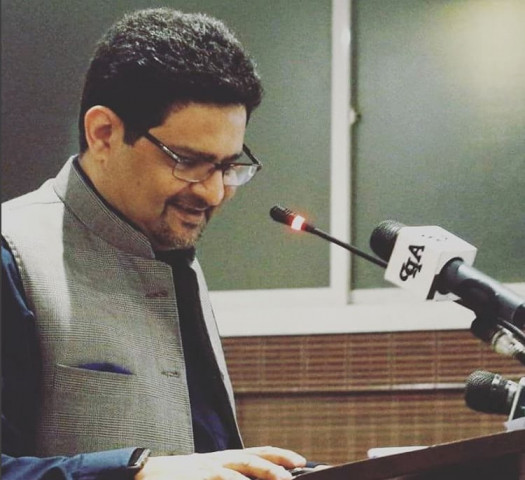
Admits government does not have funds to clear all power sector liabilities, but will clear Rs140b within two weeks. PHOTO COURTESY: INSTAGRAM @MIFTAHISMAILOFFICIAL
By increasing the rate of the levy, the government will smartly generate Rs480 billion in extra revenues, besides addressing the issue of sharing taxes with the federating units.
The petroleum levy, which falls in the category of 'other taxes' is not part of the basket of taxes that provinces and the Centre share under the 7th National Finance Commission (NFC) Award.
"The government has not yet decided to actualise new petroleum levy rates, and fixing the rate at Rs30 per litre for all petroleum products will create room for price fluctuation," said federal Finance Minister Dr Miftah Ismail, while addressing post-budget press conference on Saturday.
Once implemented, rates of all petroleum products will go up by Rs20 per litre above existing rates. An upward adjustment of petroleum prices is likely to trigger an increase in prices of other items, including transport fares.
When asked if the increase was to offset the effect of a reduction in sales tax rates, bringing them to a standard 17%, Ismail called it an opportunity for rationalising sales tax rates for the next government.
He said that petroleum products were still cheaper in Pakistan when compared with other regional economies.
A candy-coated budget by Miftah
The government's plan is to cut the prevailing 25.5% general sales tax (GST) rate on high speed diesel and bring down 20% petrol rates to a standard 17%, officials at the Ministry of Finance maintained.
Under the 7th NFC Award, provinces get 57.5% of the divisible pool, leaving just 42.5% with the federal government to meet all its needs, including expenditures on defence and debt servicing.
In the next fiscal year, provinces will get Rs2.5 trillion out of the federal divisible pool, amounting to nearly 57% of the Rs4.435 trillion tax collection target assigned to the Federal Board of Revenue (FBR). Of the estimated Rs1.7 trillion sales tax collection, the provinces will get Rs973 billion or 57.3% of the sales tax collection.
The solution
This way, say the sources, the federal government will not only be able to offset losses sustained because of a reduction in tax rates on petroleum products, but the three- to nine-fold increase in petroleum levy rate will also generate additional revenue for the federal government.
According to the government estimates, it will generate Rs170 billion in the outgoing fiscal year by charging Rs10 per litre petroleum levy. After increasing the rates to Rs30 per litre, the minimum revenue generation will be Rs480 billion. However, in budget books, the government showed only Rs300 billion collection from the petroleum levy in the next fiscal year.
The government may face legal challenges as petroleum levy was introduced as carbon tax – part of non-tax revenues. The move to shift this levy to the category of 'other taxes' requires legal changes.
Ismail ducked a question on the possibility of levy being challenged in courts because of this legal lacuna.
Change in rates
Through a proposed amendment in the Finance Bill 2018, the federal government has proposed exorbitant increase in petroleum levy. The petroleum levy rates on high speed diesel have been proposed to increase from Rs8 per litre to Rs30 per litre – a net increase of 275%. The petroleum levy rates on petrol are proposed to increase from Rs10 to Rs30 per litre – a net increase of 200%.
Budget 2018-19: Historic high of Rs1.03tr allocated for PSDP
The levy on kerosene oil will jump from Rs6 per litre to Rs30 per litre – a massive increase of 400%. The light diesel oil levy rate has been proposed to increase from Rs3 to Rs30 per litre – a hike of 900%. The levy rate for high octane blending component is proposed to rise from Rs14 to Rs30 per litre – a jump of 114%.
The E-10 gasoline petroleum levy rates have been proposed to increase from Rs9 to Rs30 per litre, a spike of 233%.
Ismail, meanwhile, said the government had no intention to get any bailout package from the International Monetary Fund (IMF), expressing the belief that economic measures adopted during the last five years would take the country to a strong financial position.
Flanked by PM's Adviser on Revenue Haroon Akhtar Khan, Chairman Federal Board of Revenue Tariq Pasha and Secretary Finance Arif Khan at the post-budget conference, he said the government had no intention to get any bailout package from the IMF as effective economic strategy had been put in place to improve national economy.
"We have no intention to go for a bailout package from the IMF. Efforts are being made to avoid the bailout out package," he said in reply to a question.
The minister expressed confidence that foreign exchange reserves would further improve in the coming days due to prudent policies introduced by the government.
(With additional input from APP)

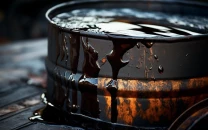
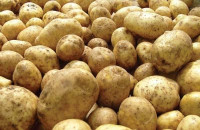
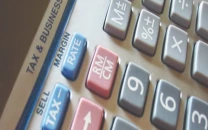
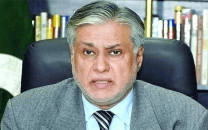

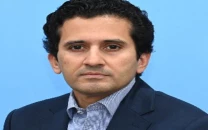












COMMENTS
Comments are moderated and generally will be posted if they are on-topic and not abusive.
For more information, please see our Comments FAQ